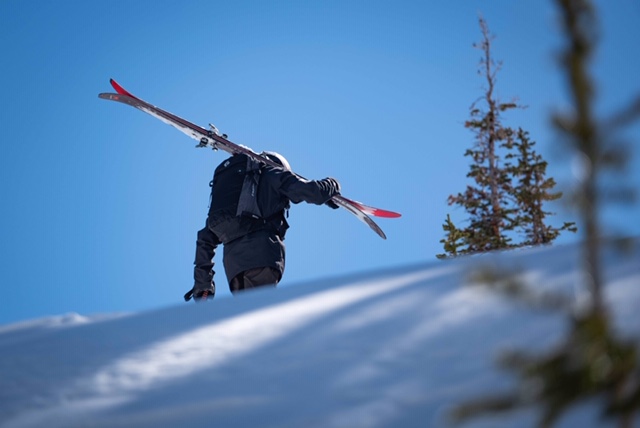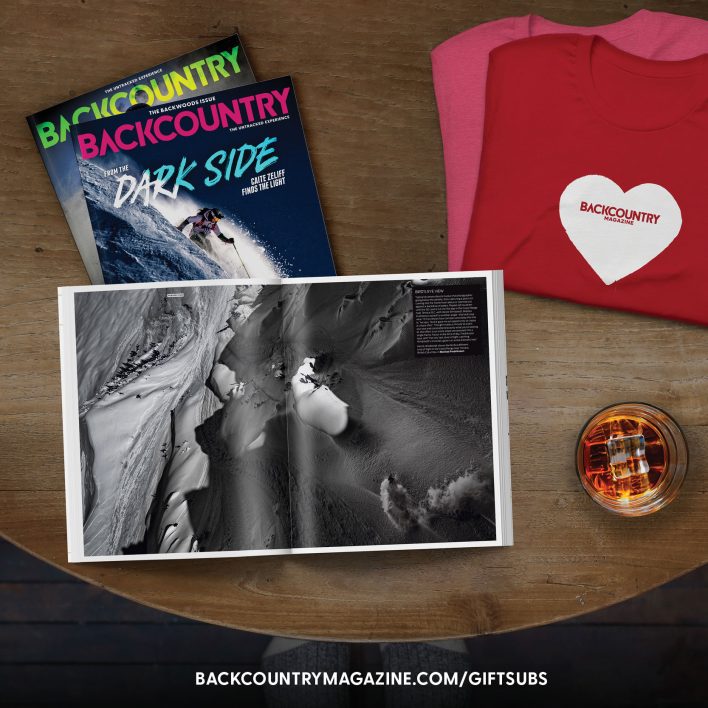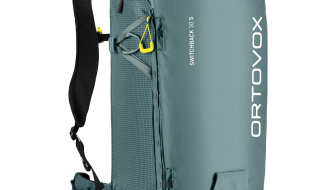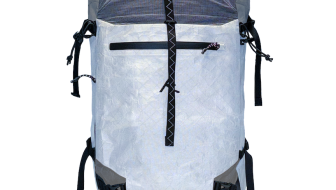Covid-19, masks and politics, oh my! What a wake up call—finally, the rest of the world gets a taste of what it’s like to deal with avalanches. Here, I present you with a learning opportunity, so to speak.
Perhaps experienced backcountry skiers and avalanche workers are better qualified than most to deal with the current global environment. Maybe we could even write government policy from the skintrack? Kidding, of course. But it is no joke that the new state of the world has forced everyone to face some hard truths. The biggest of which is this: the world is uncertain. This is not as safe of a place as you may have thought it was. Any good avalanche worker or experienced backcountry skier could have told you this years ago. If you are looking for certainty, you came to the wrong planet. Further, if you are looking for certainty in the mountains as you go forth and recreate, you have indeed picked the wrong passion.

The world of snow—whether it be seen from the point of view of an operational avalanche forecaster, guide or the brand-new backcountry skier—is an inherently dangerous and uncertain place. Snow is constantly changing: what was dangerous five days ago is now stable, what was soft powder an hour ago is now a wet slide waiting to happen and what looked like a perfectly skiable line from the trailhead doesn’t feel so good when you reach the top. Acknowledging these changes and being prepared to accept the lack of solid data or facts is what makes you understand snow and the mountains. It is only after becoming comfortable with this uncertainty that you will function well in this ever-evolving environment.
In the case of working and recreating in avalanche terrain, we not only live with the uncertainty of the snowpack and mountain environment, but also understand and accept the risk associated with it. The ski resort forecaster does everything in their power to reduce risk but recognizes that it cannot be completely eliminated. The backcountry skier studies snow and does a slope cut, but eventually has to makes that first fall line turn, understanding that there is some unknown (and thus risk) involved. If you are not willing to accept that unknown, then what are you doing here?
Based on my experience in the mountains, I will offer you my advice: if you want to play, you need to embrace vast uncertainty and accept the associated risks. Know beyond any doubt that you cannot ever eliminate risk completely. In the mountains, there is no total control. Instead, we do everything in our power to understand the situation and mitigate risk based on this incomplete understanding. We always recognize that in the end something else can (and will) go wrong. That is a fact. When it does, you react accordingly. If you can look back and say you did your best regardless of the outcome, then you can continue to move forward. In this business, being able to honestly say you did your best in the face of uncertainty is what will allow you to sleep at night, and, more importantly, to go back out and ski again tomorrow.
How do you do your best? Embrace uncertainty. Say, “I don’t know.” Uncertain situations will by definition lead you to not knowing, and that is okay. When we admit that we don’t know, we give ourselves permission to be vulnerable. More importantly, we recognize a starting point from which to gather information. Then eventually we might be able to say that we do know, whether that be what aspect a persistent weak layer is lingering on or how fast Covid-19 is spreading at a county, state and national level.
Uncertainty usually means that we can’t predict the future, so instead we have to plan ahead and then work with what the world throws at us. Improvise, adapt and overcome. Things will happen. Stay nimble, and keep moving. If you have done some planning for the “what if’s,” then this improvisation will be easier.
In avalanches, just as in the world of pandemics and politics, uncertainty is, in fact, certain. And we must all learn to accept that.










The outdoor industry as a whole is dealing with unprecedented issues in 2020. The pandemic will certainly alter the skiing landscape, but ultimately it will survive. Social justice and the PC culture however are going to leave lasting marks. How many outdoor companies are going to survive “cancel culture” remains to be seen. When I began the outdoor lifestyle 40 years ago the industry spoke for the one person who could not speak, the environment. I hope this never changes!
Exceptional words and perspective from one of the industry’s foremost experts.